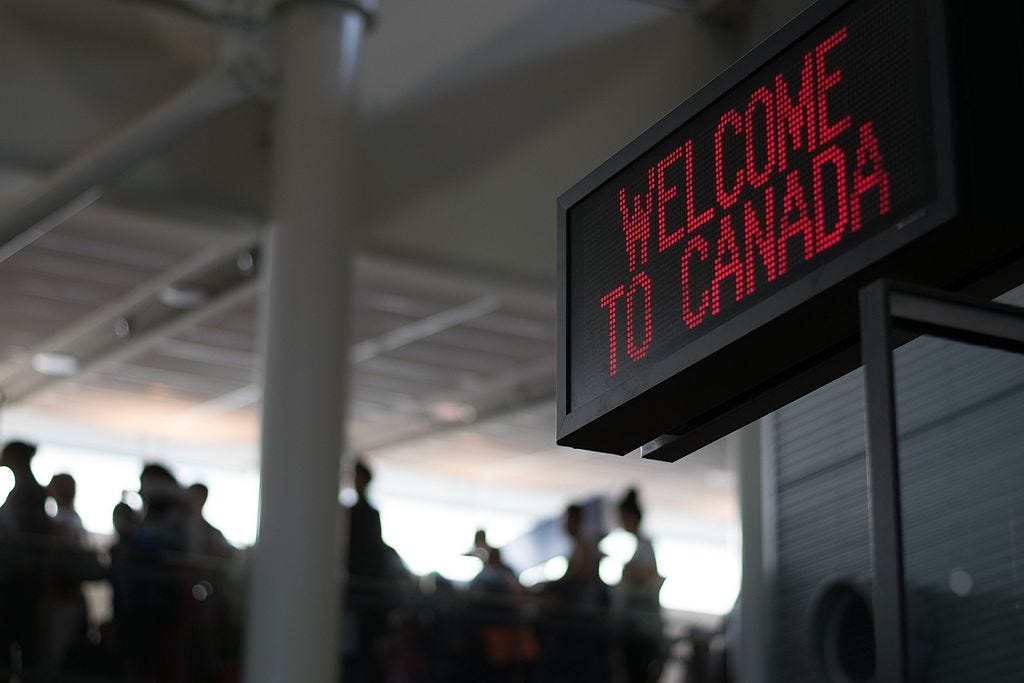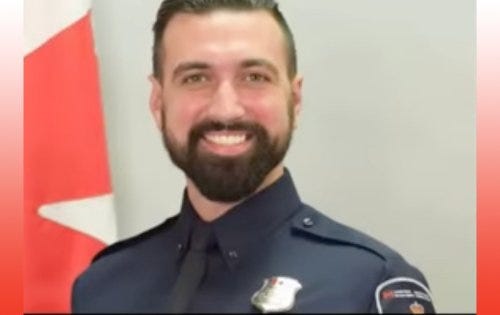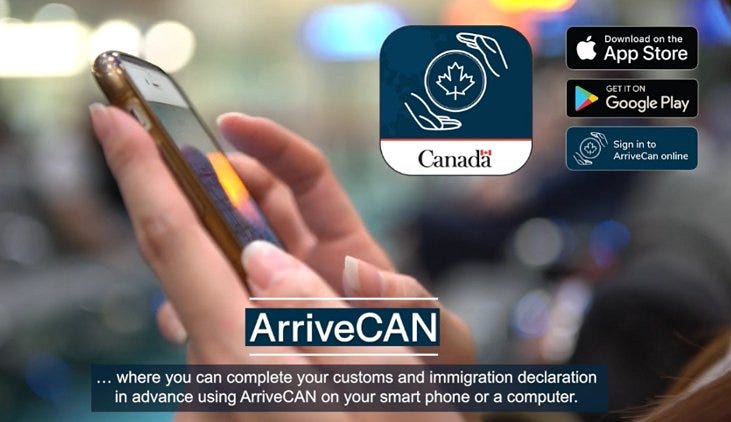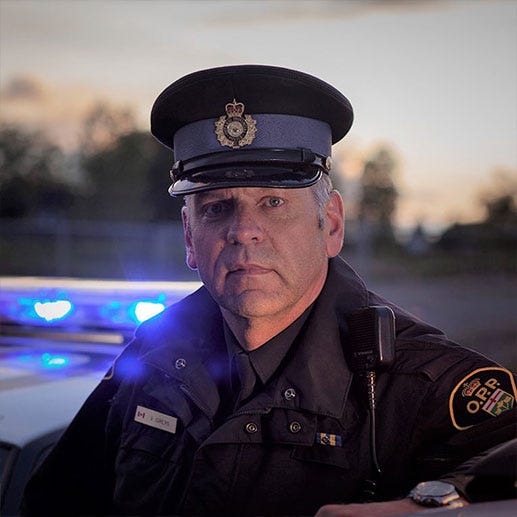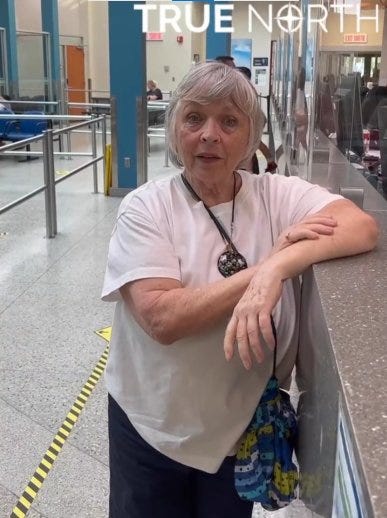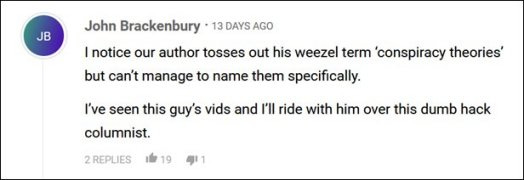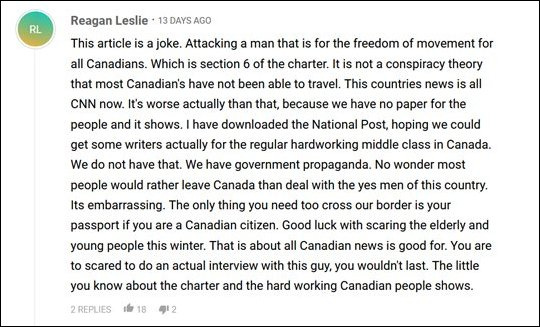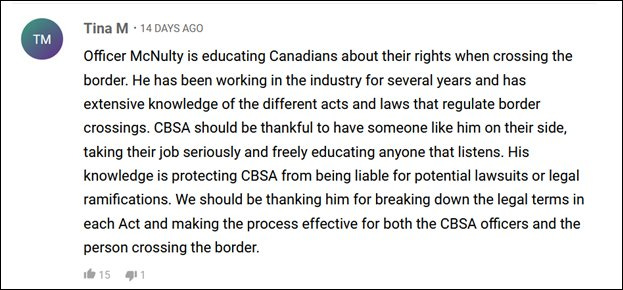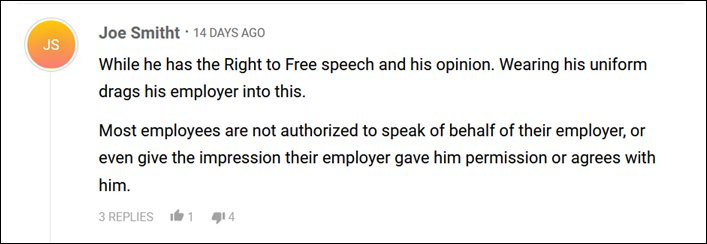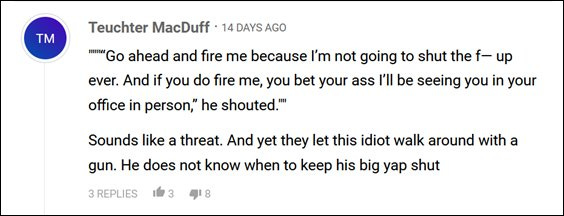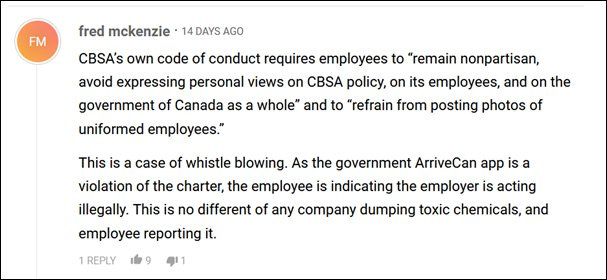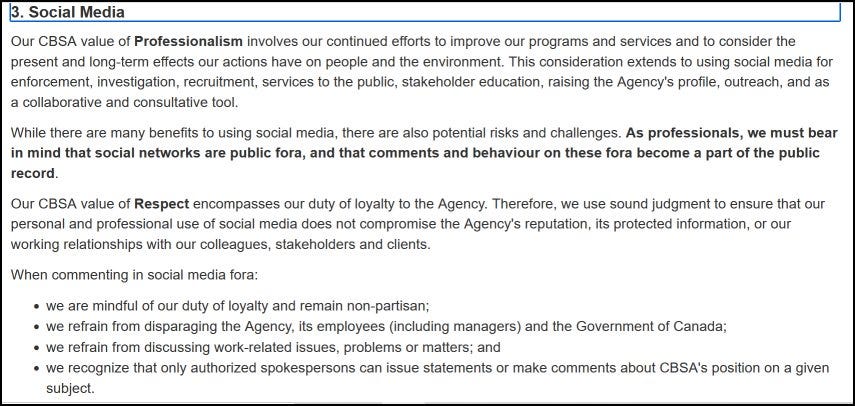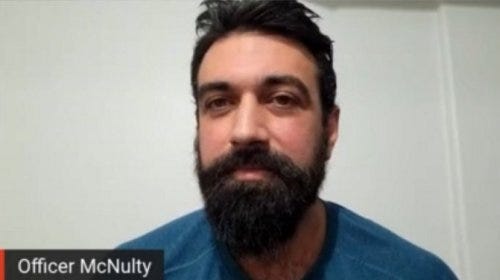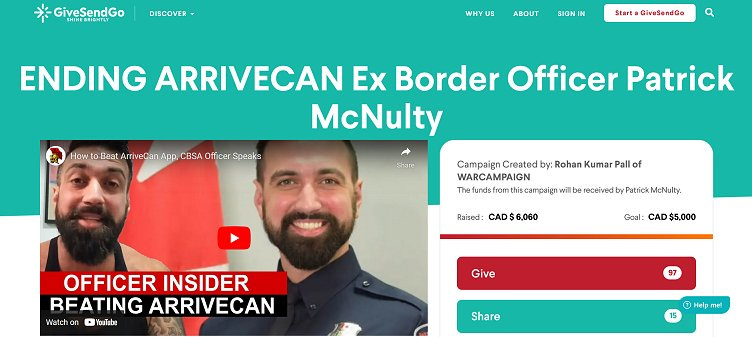Outspoken CBSA Officer fired for his claims on social media about chaotic border crossings
by Dan Fournier, published on Wednesday, Sept. 14, 2022 at 10:12 EST on fournier.substack.com
Welcome sign at Montreal Trudeau airport, Wikimedia Commons
While on sick leave from the CBSA (Canada Border Services Agency) border officer Patrick McNulty revealed that he received notice of his dismissal. McNulty who was on leave from his job due to stress had been candidly outspoken on social media regarding the way in which entries into Canada where chaotic and confusing to travelers amidst the health restrictions and measures outlined by various authorities such as PHAC (Public Health Agency of Canada).
Former CBSA Officer Patrick McNulty in uniform, YouTube screenshot
The nature of officer McNulty’s claims is what appears to have rattled his employer, the CBSA. What exactly did the candid border agent express to get him into this controversy? Before answering that, we must first look at what may have motivated him to speak out.
In an August 27 video interview with George Roche from Canadian Rights Watch, the officer explained how disenfranchised he was during the early stages of the Covid-19 Pandemic. When asked what prompted him to speak out, McNulty spoke about how he had spent months living in the streets during his youth and questions what would happen to today’s street youth should everything shut down anew amid additional Covid-19 restrictions. At the workplace, he got vocal about these kinds of issues with his CBSA colleagues who appeared apathetic to such plights, leaving him feeling isolated.
Elaborating further on what prompted him to start speaking out, McNulty, father of two children, relates to an incident whereby he had come across a post where a Canadian citizen had posted a picture of their referral slip [emphasis added]:
“In the field we call this [the slip] an E-67. This is where you are entering Canada; in this instance it was by land. So, entering Canada, an officer is going to take your verbal declaration in relation to your goods. So, if you’re a Canadian citizen, a permanent resident, or a status Indian registered under the Indian Act, we have no authority to ask you anything related to immigration, anything related to where you’re going to your own country, specifically Customs Act. So, I noticed that this referral slip was used to refer a Canadian to secondary inspection and there is nothing, nothing about the Customs Act on this referral slip. All it said was: refusing to disclose vaccination status; refusing to speak with PHAC; refusing to download ArriveCAN.”
As a consequence, McNulty then expressed that he had to rant, presumably on social media, on why this was outrageous and why it needed to stop, and stating the following:
“I realized in that moment that not only do Canadians not understand their rights in relation to entering Canada with this public health nonsense, but in general they have no clue what to do at the border. The border terrifies everyone. And so, this is kind of twofold: I’d like to expose some of the nonsense that does go on at the border regardless of, you know, public health restrictions. But also, I’d like to empower Canadians to recognize that they are free to come and go as they please, no matter what.
In this video interview, one could easily tell by his tone of voice that he speaks earnestly about this for the execution of his duties as a border officer. A bit later in this interview, McNulty relates to an internal email to [CBSA] officers that was now advertising that the controversial ArriveCAN app is to become a permanent fixture in the customs and immigration process. Moreover, McNulty also views this as a concern with regards to the job security of CBSA officers by stating:
“This is about automating the border experience. It’s about getting rid of you guys. We already have automated kiosks; and eventually, it’s gonna be this application [ArriveCAN] where you submit your declaration and the computer says one thing or the other and people just follow along. So, you guys are enforcing yourselves out of a job for one, and you’re ruining the economy and ruining our society.”
Anyone who has travelled into Canada from abroad in recent years can certainly relate to the frustration of dealing with such automated kiosks; for, they are not a one-size-fits-all fix for a smooth entrance in lieu of interacting with a human border agent.
With regards to McNulty’s warning and claim that the ArriveCAN app will be used as a vehicle for travelers to submit their custom’s declaration, he is correct. Currently, travelers arriving at the three major Canadian airports can use ArriveCAN for this purpose. Moreover, the CBSA is actively promoting it via their Traveller Modernization initiative, as can be seen from their promotional video.
Screenshot of the CBSA’s Traveller Modernization 2022 promotional video.
While using the ArriveCAN app to declare your goods is currently an optional one, it remains to be seen if the CBSA will indeed make it the norm in the future.
McNulty then criticizes how members of other law enforcement agencies such as police officers may interfere, or “piggyback”, with duties of the border agents:
“We have police officers who have no idea what’s going on at the border, they don’t understand our job, just blindly threatening Canadians that if they don’t speak with public health [PHAC], they’ll be arrested on the spot. And this is where, once again, I want people filming everything. You’re not doing anything wrong; you’re well within your rights to film and document everything that’s going on.”
He then states that the duties of the border agent should only be in relation to the Customs Act but that many are telling travelers that they must go speak with public health (PHAC).
Such were not the only spoken comments that have landed Patrick McNulty in hot water. Several other inconvenient truths he articulated raised some feathers amongst his superiors. Here are some examples from selected articles that have been published in the Canadian press.
According to an August 6 article entitled Canadian Border Agent speaks out against Trudeau’s travel app as ‘tyranny’ from LifeSiteNews.com, McNulty blasted Prime Minister Justin Trudeau’s mandatory travel-monitoring ArriveCAN app and also accused his employer of ‘enforcing tyranny’. The officer also stated that he is currently on leave without pay from the CBSA for COVID-era non-compliance. Next, he states that the worst-case scenario (of not complying with an officer’s instruction to speak with public health (PHAC)) is that in which the border officer could threaten you with a hefty fine (as much as $6,500). In such a case, McNulty advises that a traveler can just inform them that they will not comply and to go ahead and issue a ticket (the fine). He also adds that it is unlikely that the officer will even know the passenger’s address (which would be required to issue the ticket) or bother to seek out that information. McNulty further stresses that he receives a lot of concerns from people who are afraid of being hit with such disproportionate fines which they can ill afford, adding:
“[The government] is genuinely counting on mass confusion, which then equates to mass compliance, So, unfortunately, some of you officers who are choosing to side with tyranny, you’re going to get caught on tape making a fool of yourself!”
With regards to any stated obligation in revealing one’s personal address to a border agent, McNulty’s claim checks out as correct. For, at least according to the Office of the Privacy Commissioner of Canada’s Guide for Individuals Protecting Your Privacy under its ‘Personal Information’ section, the Privacy Act offers protection of personal information such as one’s home address, driver’s license, Social Insurance Number (SIN), and medical history, among other privacy factors. Since ‘medical history’ figures integral to this list, Canadian citizens and permanent residents are under no obligation to reveal their medical status (of being vaccinated or unvaccinated, or having been tested for Covid-19, for instance) if asked by a border agent, PHAC, or any other agency, at least according to the OPC.
The reader may now ponder about the complexity border officers (or any other law enforcement officers for that matter) have to deal with in the execution of their duties. McNulty refers to how CBSA agents are subject to following the laws found in no less than 20 different acts. Throw in the very controversial Quarantine Act into the mix and it is no wonder that confusion can also occur among those meant to enforce such laws, measures, restrictions, and mandates. Fortunately, former police officer Vincent Gircys from Police for freedom Canada offers some much-needed clarity on the issue. He specifically refers to Section 52(1) of the Canadian Constitution Act (1982) – The supremacy clause which states:
Simply put, this provision makes it clear that any law that is not consistent with the provisions of the Constitution is to no effect and thus unenforceable. The law office of Ducharme Weber further validates the provision by stating that it: “reaffirms constitutional supremacy. It imposes an obligation on bodies empowered to determine questions of law to do so in a manner consistent with the Constitution and to invalidate or treat as invalid a law to the extent of its inconsistency with the Constitution.”
Retired police officer Vincent Gircys who is now the Chapter leader for Ontario further explains in a recent video interview that many law enforcement officers don’t even know about Article 52(1) of the Constitution and are thus largely oblivious to the supreme law of the land.
Retired officer Vincent Gircys, Police for freedom Canada’s Chapter leader for Ontario
In this light and, arguably, Patrick McNulty does hold ground on some of his claims regarding the legality and enforcement of some of these ostensible health measures.
The apparent inconsistent treatment towards travelers by CBSA border agents – particularly in regards to the ArriveCAN app – certainly accentuates hindrances experienced at the border and particularly in busy Canadian airports. Some travelers seem more aware than others regarding their rights. For example, an elderly lady – Jo Walsh, who was fully vaccinated, had refused to use the ArriveCAN app, was ordered to quarantine, and was eventually issued a ticket of $6,255 from public health. While other travelers refused to comply including a man traveling with his son who asserted his rights and sailed on through the border and without disclosing his medical status or speaking with PHAC, as did a lady who asserted her right to proceed.
Traveler Jo Walsh, video screenshot from True North News
For travelers coming from abroad, there’s the added confusion of whether or not they are required to install and use the ArriveCAN app on their phones (or laptops) prior to their arrival and upon entry into Canada. If some CBSA agents are not clear on whether this is an enforceable requirement, the CBSA has it clearly stated on their website that citizens and permanent residents (and persons registered under the Indian Act) will not be denied boarding or entry if they don’t use ArriveCAN, but may be subject to certain conditions or penalties.
Screenshot of the CBSA’s ‘Use ArriveCAN to enter Canada’ , taken Sept. 10, 2022,
URL: https://www.canada.ca/en/border-services-agency/services/arrivecan.html
With wording such as “may”, perhaps this is where things can become subjective or discretionary, depending on the particular border agent, travelers, and circumstances. Regardless, every Canadian passport has the following written on its first page:
The Minister of Foreign Affairs of Canada requests, in the name of Her Majesty the Queen, all those whom it may concern to allow the bearer to pass freely, without delay or hindrance, and to afford the bearer such assistance and protection as may be necessary.
Some travelers have had enough. Eleven Canadians who were penalised for refusing to use ArriveCAN or were required to quarantine for 14 days have lawyered up to file a collective lawsuit in federal court with the help of the Justice Center for Constitutional Freedoms (JCCF).
Privacy concerns, use of their personal health information, and hefty fines – some up to $8,500 – were the major issues of contention. “The Justice Centre [JCCF] has heard from thousands of Canadians who have been negatively impacted by the federal government’s mandatory requirement to use ArriveCAN. Thousands of law-abiding citizens have been fined egregiously simply for returning to their home country,” said Eva Chipiuk, a lawyer working on this case.
According to an August 24 article from the Toronto Sun entitled Court asked to kill ArriveCan, declare it a violation of Charter rights, the JCCF further stated:
“The Minister of Transport has defended ArriveCan as vital in preventing the spread of COVID despite evidence that vaccines cannot stop transmission or infection. The minister also claimed ArriveCAN has not caused the ongoing travel backlog, despite evidence that the CBSA (Canada Border Services Agency) agents have stated it is in fact causing delays.”
Coverage of officer Patrick McNulty has been rather scarce in the Canadian Press with the notable absence of any related articles from the likes of the CBC, CTV, as well as Global News.
The National Post and its network of outlets, however, did run what some, including McNulty himself, are calling a ‘Hit Piece’. The article, headlined as CBSA says it's investigating border officer spreading COVID conspiracies online was published on August 25. Sifting through the accompanying viewer comments for this article, we can observe that some are not particularly pleased with the language used by the author from the reputed national news publication. Many have expressed their discontent in how the labels of ‘conspiracy theorist’ and ‘conspiracy theories’ have been used. Here is a sampling of user comments who offer this criticism with choice words:
While the majority of comments seem to express disagreement with the author’s views and with their overall frustrations with regards to Covid-19 related health measures, some agree with the author on some points:
With another commenter offering a more balanced perspective, also stating that McNulty’s case is more of a whistleblower one:
The commenter’s reference to the CBSA’s Code of Conduct is accurate. In the agency’s ‘Our Values in Action’ section for Integrity, it does say that they serve the public interest by: “refraining from making derogatory comments regarding the Agency, its employees (including its managers) or the Government of Canada, especially in public spaces” as well as in its ‘Expected Standards of Conduct (3. Social Media)’ where it states:
While officer McNulty’s behavior can be construed as that of disparaging his employer or committing insubordination – a frequent grounds for dismissal – the previous comment listed above leads to a good question. Should former CBSA officer Patrick McNulty be seen as a whistleblower instead of a disgruntled and insubordinate employee?
Patrick McNulty, screenshot from his interview with Canadian Rights Watch, via Rumble
A GiveSendGo campaign ‘ENDING ARRIVECAN Ex Border Officer Patrick McNulty’ has been created by YouTuber Rohan Kumar to help Patrick McNulty financially and in his quest to keep speaking out and informing people. The goal of $5,000 for the campaign has been reached and now stands at over $6,000 in donations along with a plethora of encouraging comments from donors.
Screenshot from the GiveSendGo campaign which has amassed over $6,000
as of Sept. 13, 2022
CBSA spokesperson Karine Martel confirmed that Patrick McNulty is no longer an employer of the Agency and could not offer further details regarding this case since the CBSA is bound by the Privacy Act. Patrick McNulty has not replied back to this author’s request for comments as of publishing time.
Note of disclaimer: None of the information contained in this article is to be taken as legal advice.
Additional Note:
This article was commented upon by YouTuber Clyde do Something in his Sept. 15 broadcast entitled ArriveCAN is a Total Failure as Canadians Refuse to Use It - Scrap the Ap (see from about the 7:27 mark).

